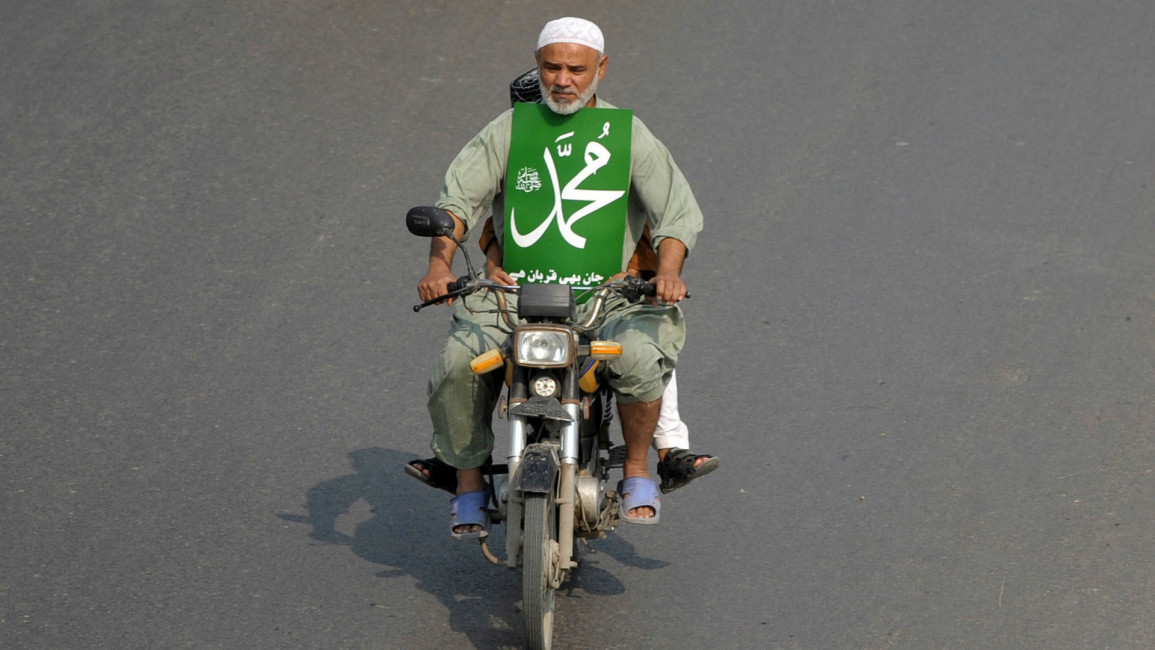
Je ne suis pas Charlie! North Africa reacts
Although there was universal condemnation throughout the Muslim world of the murders of journalists and cartoonists at Charlie Hebdo in Paris and of innocent shoppers at a supermarket in Vincennes, the reaction to the defiant publication of five million copies of the journal after the attacks has been far less unanimous.
The issue has been its front page cartoon of the Prophet Muhammad in tears, offering universal forgiveness while holding a sign saying "Je suis Charlie". The latest issue was
| Al-Azhar university simply advised Muslims to ignore the Charlie Hebdo commemorative issue. |
also published on a Friday - January 16 - which, although no doubt coincidental, was not the most appropriate day for a cartoon of the Prophet Muhammad to appear.
The result has been demonstrations throughout the Muslim world expressing profound disapproval, with Turkey the only Muslim country in which the cartoon was reproduced, while the offending issue of Charlie Hebdo itself was universally banned. The cause of such widespread displeasure was, of course, the representation of the Prophet as a deliberate riposte to the murders of nine of the magazine's staff and the wounding of four others. Particularly in North Africa, the demonstrations betrayed other social tensions as well.
Demonstrations in North Africa
As elsewhere in the Muslim world, the commemorative issue was not available in North Africa, although official reactions to it varied. In Egypt, the al-Azhar university, one of the most renowned Islamic institutions in the world and a bastion of Sunni orthodoxy, simply advised Muslims to ignore it. Its fatwa office, the dar al-Iftaa, was more outspoken, however, describing the commemorative issue as "an unjustified provocation" stirring up a "new wave of hatred" within the Muslim world.
This view was shared by the Coptic pope, Tawadros II, and President Abdel Fatah el-Sissi empowered Premier Ibrahim Malhab to ban any foreign publication offensive to religion. For once, official Egypt and the Muslim Brotherhood's intellectual leader, Youssef Qaradawi in Doha, all agreed that Charlie Hebdo's latest edition was "unwise" and lent credibility to the belief that the West was opposed to Islam.
There were no demonstrations about it in Egypt, although at the end of the week clashes between Brotherhood supporters and local residents in Alexandria caused at least one death. In Sudan, demonstrations after Friday prayers were sparsely attended. Even in newly democratic Tunisia, the response was subdued. No newspaper reproduced the offending cartoon, but there were no violent demonstrations against it. Libya, of course, was otherwise engaged as its two governments and their militias contested control of Benghazi, Sirt and the country's oil infrastructure.
In Morocco, as the government spokesman, Mustapha Khalfi, made clear, the offending issue was simply banned, as were all publications that reproduced the cartoon. Even more significantly, the foreign minister, Salaheddin Mezouar, refused to join the massive demonstration of support in Paris the previous Sunday because "offensive" cartoons were being carried in the crowd.
Reactions in Algeria
The most surprising responses to the cartoons occurred in Algeria. There was, of course, universal condemnation of their publication as a provocation to Muslim public opinion. Ech-Chourouk, the largest-circulation Arabic daily, also launched a campaign "to defend the Prophet".
In its own cartoon, the newspaper highlighted Western hypocrisy, offering support to Charlie Hebdo - but only in Europe - whilst its tanks rampage across countries in turmoil in the Middle East and Africa. Al-Joumhouria chose an anti-Zionist theme that provoked some adverse comment on social media.
Eyebrows were raised, however, by the fact that there were demonstrations in the centre of Algiers where all demonstrations have been banned since mid-2001. The demonstrations, by more than a thousand salafi supporters, some in what is euphemistically called "Afghan dress" in Algeria, took place just after Friday prayers, despite a substantial police cordon. The demonstrations ended in clashes when the demonstrators tried to break through into May 1 Square, the symbolic heart of the capital. The veteran Islamist leader, Ali Bel Hadj, had tried to join in but was detained by the police instead.
The event recalled the two occasions in recent years when marches had occurred in the capital. Last year, riot police demonstrated outside el-Mouradiya, the presidency, over their conditions-of-service. In 2011, a small group of secular politicians had tried to protest over governance and living conditions but 30,000 police "kettled" them.
The fact that the government allowed the demonstration to take place at all also attracted widespread criticism, along with some speculation. For the Mouvement Democratique et Socialiste, a small but vocal political party, the march demonstrated support for the "most barbarous crimes committed in the name of Islam" from the Islamists, who had benefitted from "official indulgence" despite the experiences of the civil war in the 1990s. The centrist daily, El Watan, close to the security services and very critical of the presidency, reminded its readers of the threatening marches of the Front Islamique du Salut before the civil war began.
It also pointed out that other Islamist movements had been prevented from demonstrating and that salafist behaviour ran counter to religious affairs minister Mohammed Aissa's promises of a tolerant, enlightened Islam, rooted in the traditions of Muslim Spain. Behind these complaints is a conviction that the Bouteflika regime, now in its final days, is manipulating salafism as a weapon against its political opponents to protect its own future, even at the price of religious intolerance. It is a dangerous policy, as then-President Chadli Bendjedid discovered in 1992, for it led first to a military coup and then to civil war.




